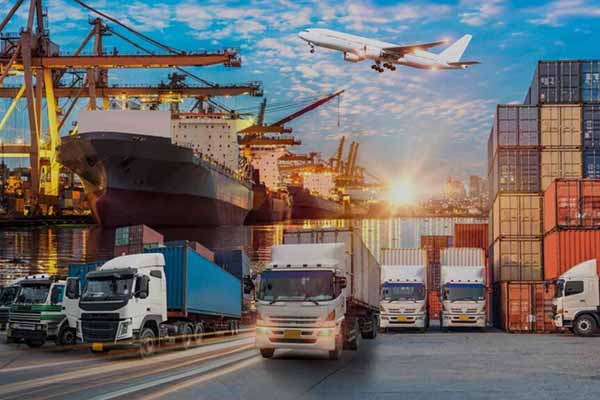In today’s fast-paced and interconnected world, efficient logistics management is crucial for businesses to stay competitive. With the rise of e-commerce and the increasing complexity of global supply chains, companies are turning to artificial intelligence (AI) to optimize their logistics operations. One area where AI is making a significant impact is in smart routing and delivery, revolutionizing the way goods are transported and delivered within digital supply chains.
Traditional logistics management relies on static routing and planning, often resulting in inefficiencies, delays, and increased costs. However, AI-powered smart routing systems can dynamically analyse vast amounts of data, including real-time traffic information, weather conditions, delivery constraints, and historical patterns. By processing and interpreting this data, AI algorithms can generate optimized routes and schedules, considering multiple factors simultaneously to minimize delivery times and costs.
One of the key advantages of AI-powered smart routing is its ability to adapt in real-time to changing conditions. For example, if a road is congested due to an accident or if there is a sudden change in delivery priorities, the AI system can quickly recalculate the optimal route and provide alternative options. This flexibility allows logistics managers to respond to unforeseen events and minimize disruptions, ultimately improving customer satisfaction.
Moreover, AI algorithms can learn from historical data and continuously refine their routing strategies. By analysing past delivery performance, the system can identify patterns and correlations, such as peak traffic hours or delivery delays in specific regions. This knowledge enables the AI system to proactively adjust routing plans, avoiding potential bottlenecks and optimizing delivery routes based on real-world experience.
Another crucial aspect of smart routing is the integration of real-time tracking and monitoring technologies. AI-enabled systems can connect with GPS devices, IoT sensors, and other data sources to provide real-time visibility into the location and status of goods in transit. This real-time tracking not only allows logistics managers to monitor delivery progress but also enables proactive notifications and alerts to customers regarding estimated arrival times, ensuring transparency and enhancing the overall customer experience.
Furthermore, AI-powered routing systems can optimize the allocation of resources, such as vehicles and drivers, based on demand fluctuations and delivery priorities. By analysing historical data and forecasting future demand, the AI system can allocate resources more efficiently, reducing idle time and increasing overall operational productivity. This optimization leads to cost savings and a more sustainable use of resources, aligning with the growing focus on environmental responsibility in logistics operations.
The benefits of AI-driven smart routing and delivery extend beyond individual companies. As more businesses adopt AI-powered logistics solutions, a network effect is created, enabling collaboration and data sharing across the supply chain ecosystem. For example, manufacturers, distributors, and transportation providers can share real-time data, enabling better coordination and synchronization of logistics activities. This collaborative approach leads to improved end-to-end visibility, reduced redundancies, and enhanced efficiency throughout the digital supply chain.
Despite the numerous advantages, implementing AI-driven smart routing and delivery systems does come with challenges. Companies need to invest in the right infrastructure, including AI platforms, data collection mechanisms, and connectivity solutions. They also need to address data privacy and security concerns to ensure the protection of sensitive information. Additionally, organizations should provide proper training and education to logistics professionals to maximize the potential of AI technologies.
In conclusion, AI is transforming logistics management by revolutionizing smart routing and delivery in digital supply chains. The ability of AI algorithms to process vast amounts of data in real-time, adapt to changing conditions, and continuously learn and optimize routes is revolutionizing the way goods are transported and delivered. AI-powered smart routing enhances efficiency, reduces costs, improves customer satisfaction, and enables collaboration across the supply chain ecosystem. With proper investment and strategic implementation, businesses can unlock the full potential of AI in logistics, gaining a competitive edge in today’s rapidly evolving business landscape.















